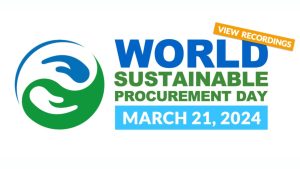 “Buyers need to understand the importance of ‘buying locally’ and have the ability to identify locally manufactured products. By doing so they actually buy back jobs,” said Philippa Rodseth, Executive Director of the Manufacturing Circle.
“Buyers need to understand the importance of ‘buying locally’ and have the ability to identify locally manufactured products. By doing so they actually buy back jobs,” said Philippa Rodseth, Executive Director of the Manufacturing Circle.
Speaking at an Economic Policy Dialogue hosted by the Department of Trade and Industry (dti), Rodseth said that there is a need to educate consumers to know what is locally produced when making a purchase. She said it is a strong move towards full scale industrialisation and inclusive growth.
According to reports, manufacturing’s contribution to gross domestic product has fallen from 24% in the early 1980s to 13% in 2014.
Procurement is not just a process that happens between a seller and buyer, local procurement can assist in boosting economic growth, reduce imports and build our country’s future, noted Rodseth.
“Localisation can protect domestic industries and attract inward foreign direct-investment in intermediate-goods production (goods or services used to produce a ‘final’ good) .It can also act as a mechanism for raising employment levels and shifting profits to domestic firms if foreign firms rely on imported inputs more than do domestic firms.”
But localisation comes at a premium and policy makers need to understand the trade-offs and the success thereof is subject to the economic and social environment of the country, the current structure of production, available technology and transparency.
 “In terms of procuring locally, policy makers need to ensure that a ‘whole value chain’ and ‘systems thinking approach’ is applied and guard against overburdening local procurement. They must focus on understanding and minimising unintended consequences (by better understanding real-world processes, interdependencies and trade-offs). The best option would look for economies of scale across project portfolios, rather than only within specific projects,” said Martin Cameron, Managing Director at TRADE Research Advisory.
“In terms of procuring locally, policy makers need to ensure that a ‘whole value chain’ and ‘systems thinking approach’ is applied and guard against overburdening local procurement. They must focus on understanding and minimising unintended consequences (by better understanding real-world processes, interdependencies and trade-offs). The best option would look for economies of scale across project portfolios, rather than only within specific projects,” said Martin Cameron, Managing Director at TRADE Research Advisory.
To illustrate his point, Cameron discussed the problems around the procurement of renewable energy from independent power producers.
There were unintended consequences from the Renewable Energy Independent Power Producer Procurement Programme,said Cameron. Some of the real-world issues that were poorly understood include:
- Limitations of geographic specifics.
- Real world logistics – time lags on investment, construction and refurbishment requirements of manufacturing facilities.
- Key investment decision and business sustainability variables e.g. certainty around timing and volumes of programmed “demand” versus need for “bundled” competitive bidding – resultant challenges with “lumpiness” and “delays” for producers.
- Bottlenecks owed to insufficient/non-existing certification processes/facilities.
- Lack of available domestic production owed to limited scale of single initiatives.
- Policy uncertainty.
Policy makers need to address systemic problems in local procurement, not the symptoms of those problems. They must be encouraged to take a longer-term view, that is, to accept short-term investment or higher costs for long-term benefits (where relevant).
Government and private policy makers must ensure fact-based decision-making becomes an enshrined principle in policy formulation and decision-making processes,” said Cameron.
Lastly, the localisation situation in South African infrastructure implies that opening up critical infrastructure in South Africa will promote greater private sector service delivery participation through adequate competition.

























